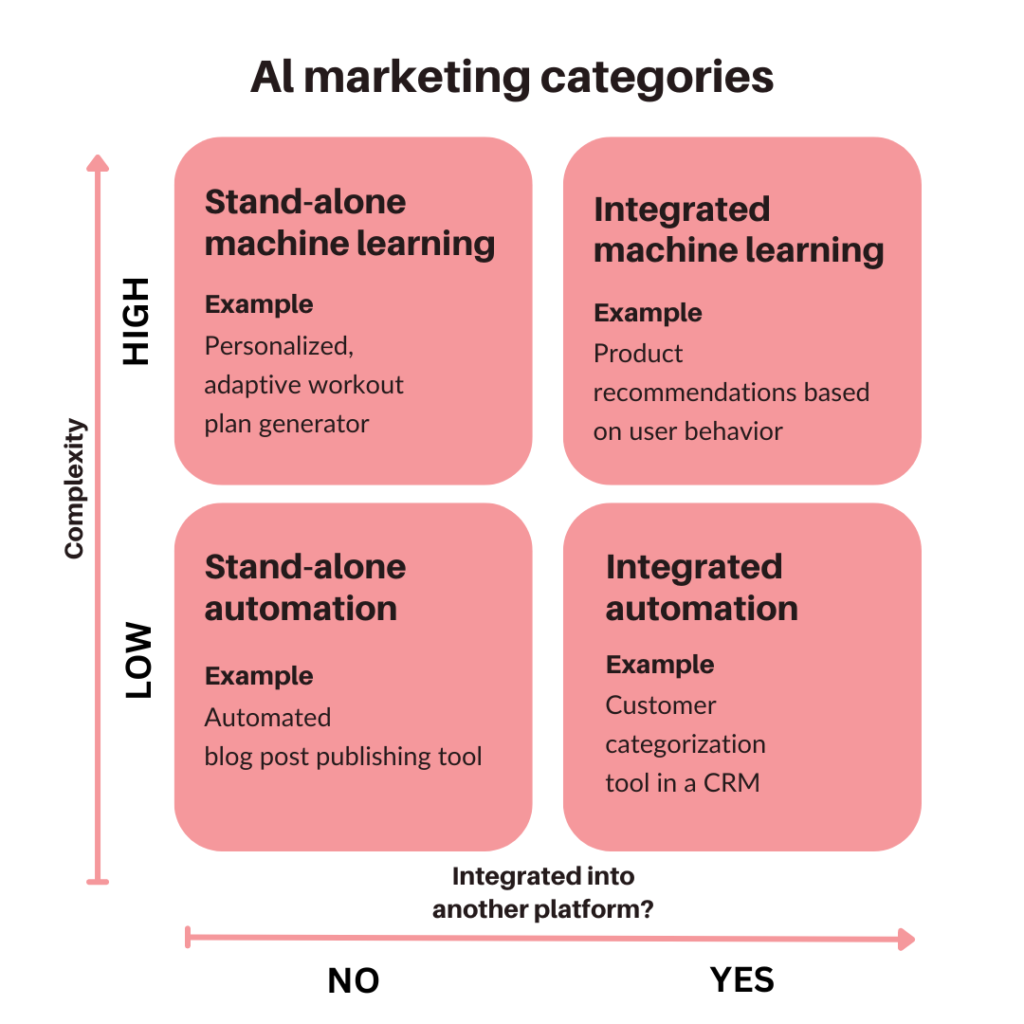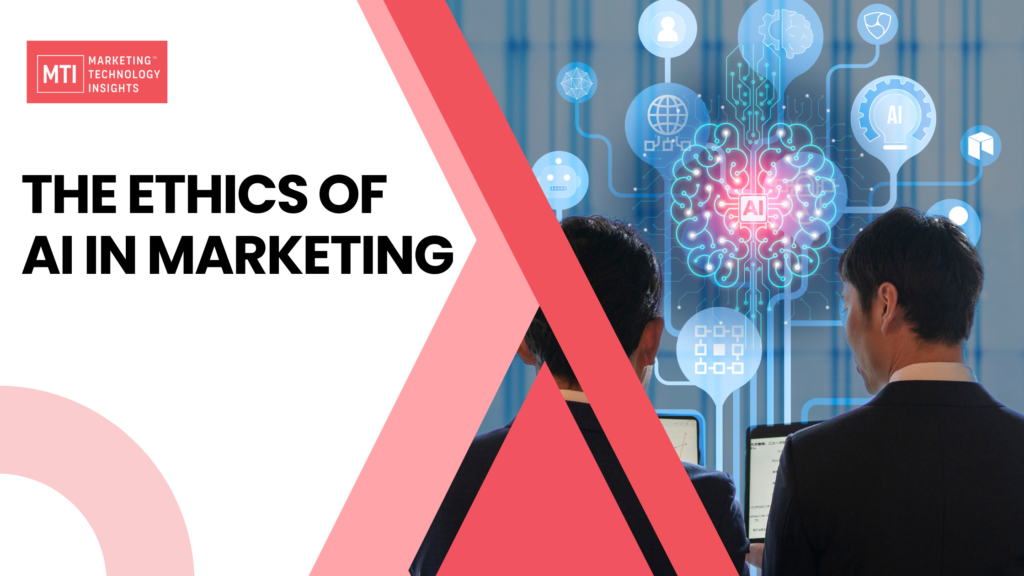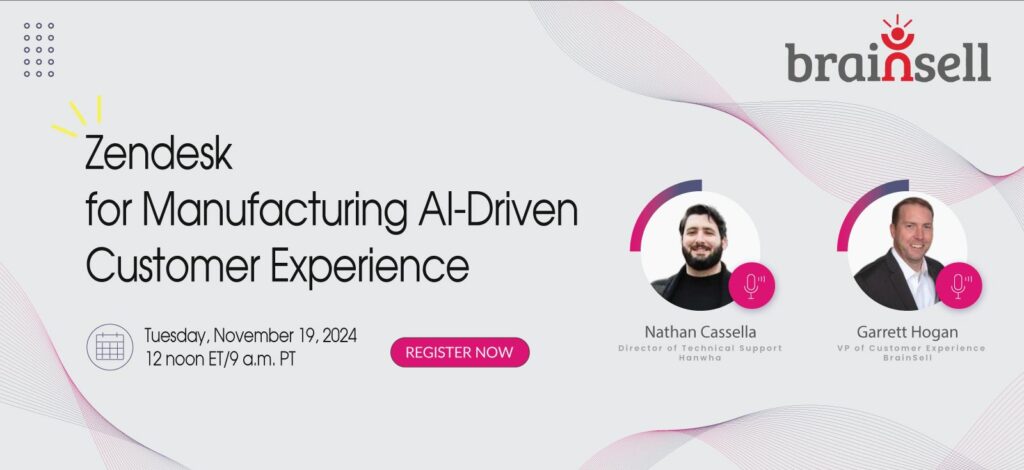Introduction to AI in Marketing
Great marketers use AI in marketing to scale their growth with data, CRM, and analytics. Recent reports show the growth of Artificial Intelligence software companies providing co-pilot capabilities to marketing, sales, and customer success teams. Salesforce, HubSpot, and Adobe (owners of Marketo) lead the trends.
In the digital age, artificial intelligence (AI) has revolutionized marketing, offering unprecedented targeting, personalization, and engagement capabilities. However, this technological advancement brings with it a myriad of ethical considerations. As marketers harness the power of AI to connect with consumers, questions arise about privacy, consent, and the fine line between personalization and intrusion. This blog post delves into the ethical quandaries of AI in marketing, aiming to shed light on the grey areas that professionals must navigate to use AI responsibly and effectively.
Understanding AI in Marketing
The use of AI in marketing is not a recent phenomenon. AI traces its origins in marketing to the early 1960s when the first set of computer-based machine-learning algorithms appeared. The real push came in the internet era with the rise of new techniques for website analytics, engagement tracking, sentiment analytics, content management, automation, and now, headless commerce. Top marketing organizations rely on AI in their marketing technology stacks to reach target audiences and engage them with hyper-personalized conversations across different channels.
AI in marketing refers to using machine learning algorithms, natural language processing, and other AI technologies to analyze data and automate decision-making processes. This can range from personalized recommendations on e-commerce sites to AI-powered chatbots providing customer service. The goal is to enhance the customer experience, improve efficiency, and drive sales by delivering more relevant and timely content to consumers.
However, the application of AI in marketing extends beyond automation and efficiency. It’s about understanding consumer behavior at a granular level, predicting future trends, and even generating creative content. For example, AI can analyze vast amounts of data from social media, search patterns, and previous purchases to tailor advertisements to individual preferences, sometimes even before the consumer is aware of their own needs or desires.

Ethical Considerations in AI Marketing
The ethical landscape of AI in marketing is complex, with privacy and data protection at the forefront. In an era where personal data is a currency, how companies collect, store, and use this information raises significant ethical concerns. There’s a fine line between personalized marketing and invasive surveillance. The use of AI to analyze consumer behavior and preferences must be balanced with respect for individual privacy and consent.
Moreover, transparency and accountability in AI-driven marketing decisions are crucial. As algorithms influence what consumers see online, the rationale behind these decisions often remains opaque. This lack of clarity can undermine trust and raise questions about bias and fairness in AI systems.
Navigating the Grey Areas
In the digital realm, the concept of consent becomes muddled. Traditional methods of obtaining consent, such as pre-ticked boxes and dense terms of service agreements, are increasingly scrutinized for their effectiveness and ethicality. The challenge lies not just in obtaining consent, but in ensuring that it is informed, genuine, and reflective of the individual’s intentions.
- Transparency Issues: Consumers often face complex agreements that obfuscate the true extent of data collection and usage. This lack of transparency undermines the very foundation of informed consent.
- Simplifying Consent Processes: Ethical marketing in the AI era necessitates a shift towards more user-friendly consent mechanisms that clearly articulate the purpose and scope of data collection, allowing consumers to make informed decisions.
Autonomy and AI’s Influence
AI’s profound impact on consumer choices brings to light concerns about individual autonomy. AI-powered predictive analytics has blurred the line between offering helpful recommendations and subtly manipulating choices. This capability enables marketers to respond to changing audience behavior and offer products based on consumer preferences. Now, AI data training has stirred debate among guardians of data privacy and compliance. Many raise ethical questions about AI’s intrusive effect on consumer shopping behaviors. AI influences decision-making, especially when customers have to choose between products and services from similar brands.
Let’s understand.
- Predictive Versus Prescriptive: Distinguishing between AI that predicts consumer behavior and AI that seeks to alter it is crucial for ethical marketing practices.
- Safeguarding Autonomy: Marketers must navigate this terrain carefully, ensuring that AI aids rather than undermines consumer decision-making by preserving autonomy.
Personalization Versus Privacy
The tension between personalization and privacy is a central ethical concern in AI-driven marketing. On one hand, consumers demand and appreciate personalized experiences that align with their interests and needs. On the other, they are increasingly wary of the privacy implications of the data collection and analysis that underpin this personalization.
- Consumer Expectations: The expectation for personalized content must be balanced with a commitment to privacy, requiring marketers to navigate a delicate ethical landscape.
- Ethical Personalization: Achieving this balance involves a nuanced approach that respects consumer privacy while leveraging AI to offer value and relevance in marketing messages.
Navigating Ethical Complexity
The ethical deployment of AI in marketing necessitates a comprehensive and nuanced approach, considering the multifaceted nature of consent, autonomy, and privacy.
- Developing Ethical Frameworks: Establishing clear guidelines and frameworks that prioritize ethical considerations in AI marketing strategies is essential.
- Continuous Ethical Evaluation: As AI technologies evolve, ethical guidelines should tighten too. It would guide the use of AI in marketing, ensuring practices remain aligned with societal values and expectations.
Bullet Points Summary
- Informed Consent Challenges: Move beyond pre-ticked boxes to ensure consent is informed, transparent, and genuine.
- Autonomy Preservation: Distinguish between AI’s predictive capabilities and manipulative tactics to safeguard consumer autonomy.
- Balancing Personalization with Privacy: Navigate the fine line between delivering personalized experiences and respecting consumer privacy.
- Transparent AI Practices: Increase transparency in AI algorithms and data usage to build trust.
- Ethical Framework Adoption: Develop and adhere to ethical frameworks that guide AI use in marketing.
- Ongoing Ethical Vigilance: Regularly reassess ethical practices in line with technological advancements and changing societal norms.
Best Practices for Ethical AI in Marketing
To address these ethical challenges, companies should adhere to best practices that prioritize transparency, accountability, and respect for privacy. This includes clear communication about how consumer data is collected and used, ensuring that AI-driven decisions are explainable and free from bias, and providing consumers with control over their personal information.
Additionally, ethical AI in marketing requires commitment toward ongoing monitoring and assessment to ensure that practices evolve in line with ethical standards and societal expectations.
Conclusion
The integration of AI in marketing presents incredible opportunities and significant ethical challenges. As we navigate the grey areas, marketers must prioritize ethical considerations, balancing the benefits of AI with the need to respect consumer rights and maintain trust. By fostering an ongoing dialogue about committing to ethics and subsequent scrutiny, the marketing industry can harness the power of AI in a way that is both innovative and responsible, ensuring a future where technology enhances the consumer experience without compromising ethical values.
To send us your product news and updates, please fill this form here or click the button below.




